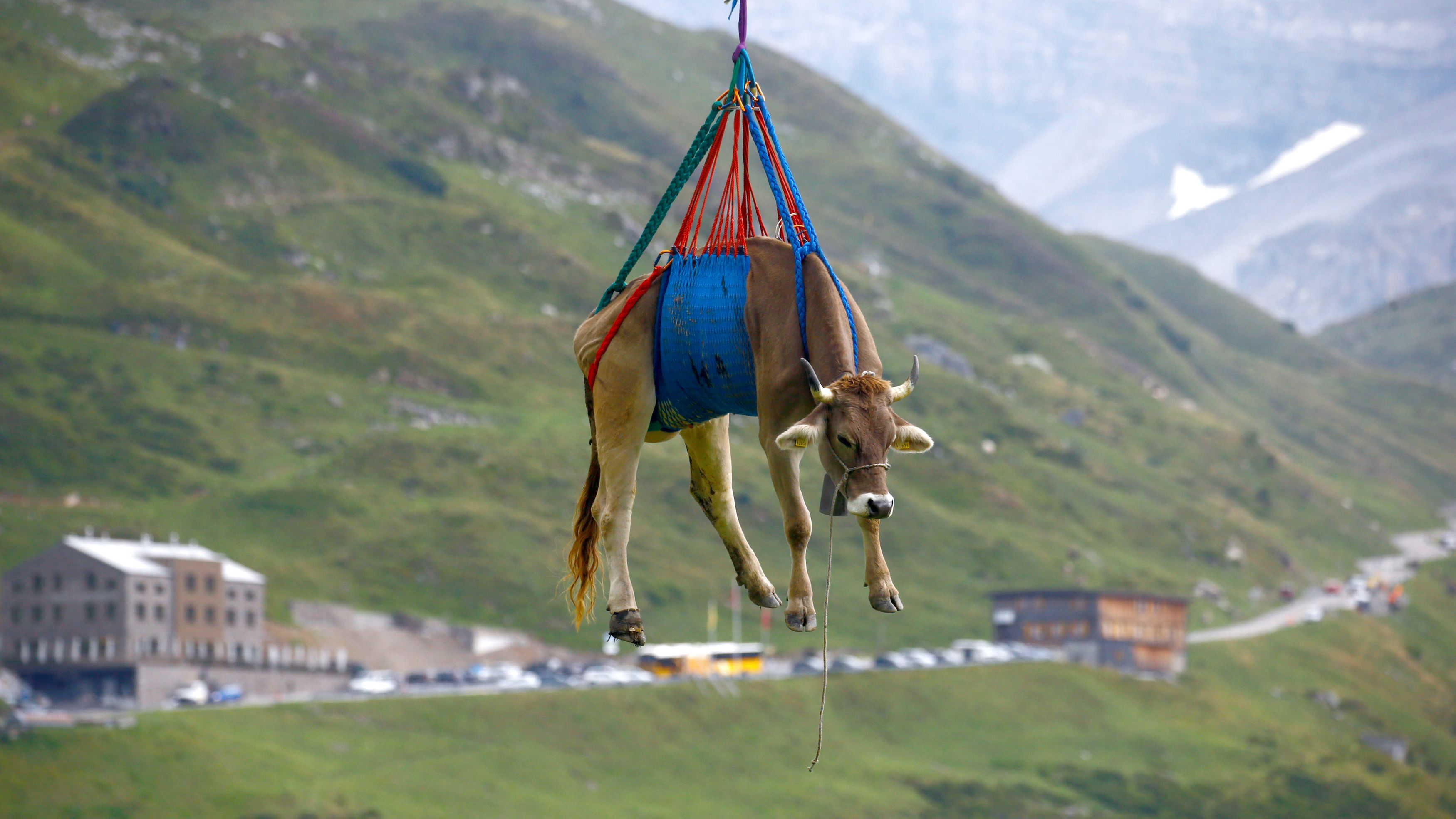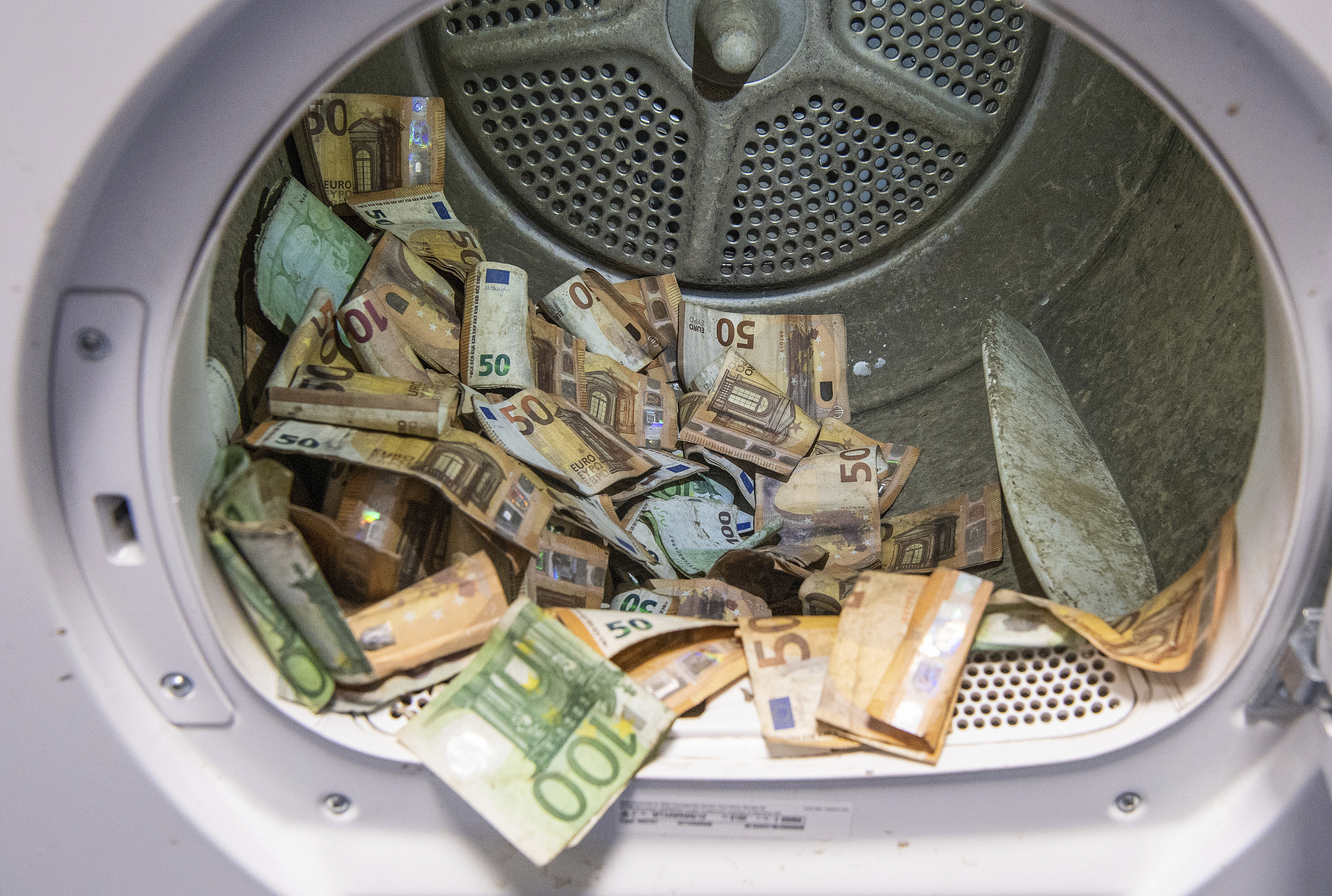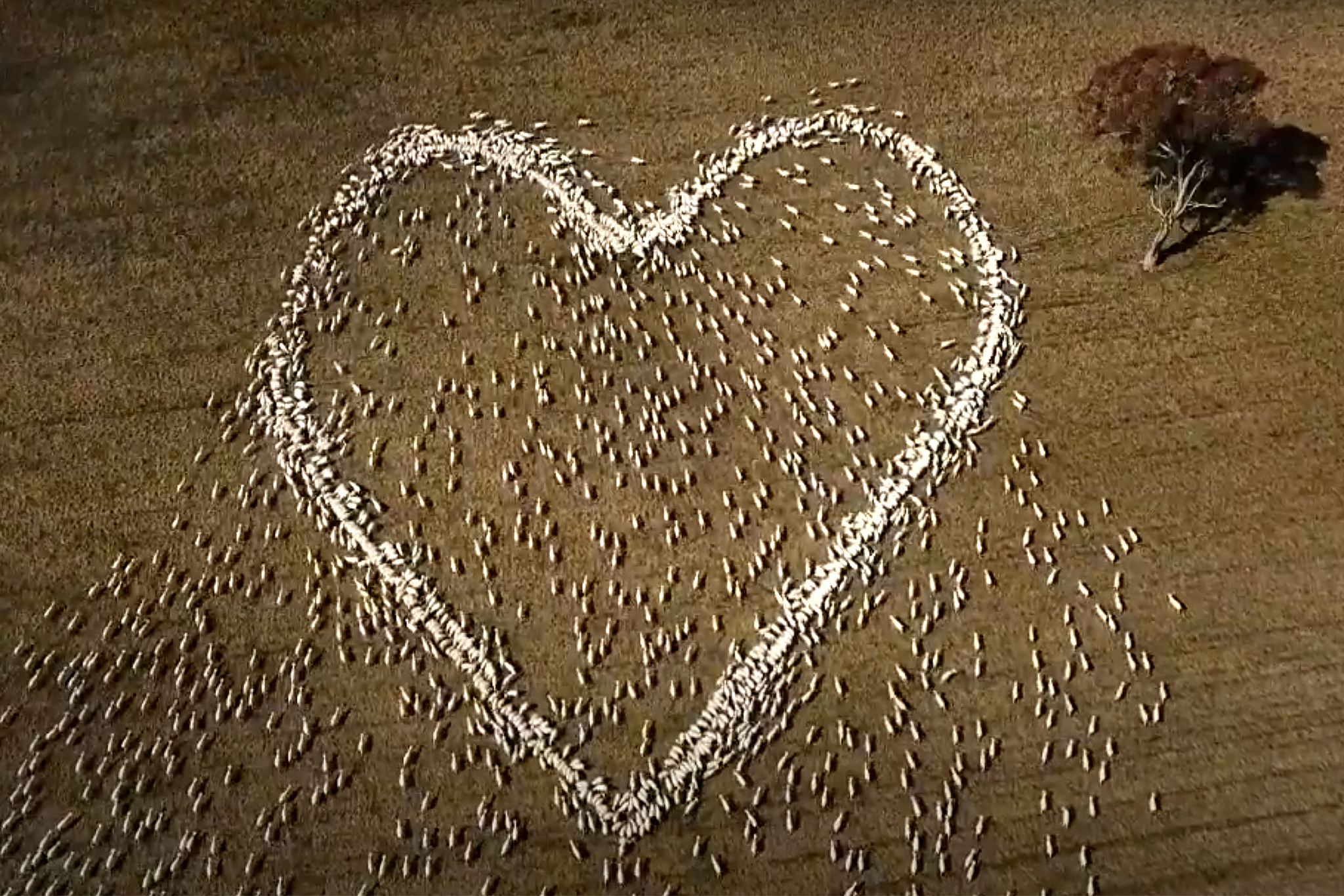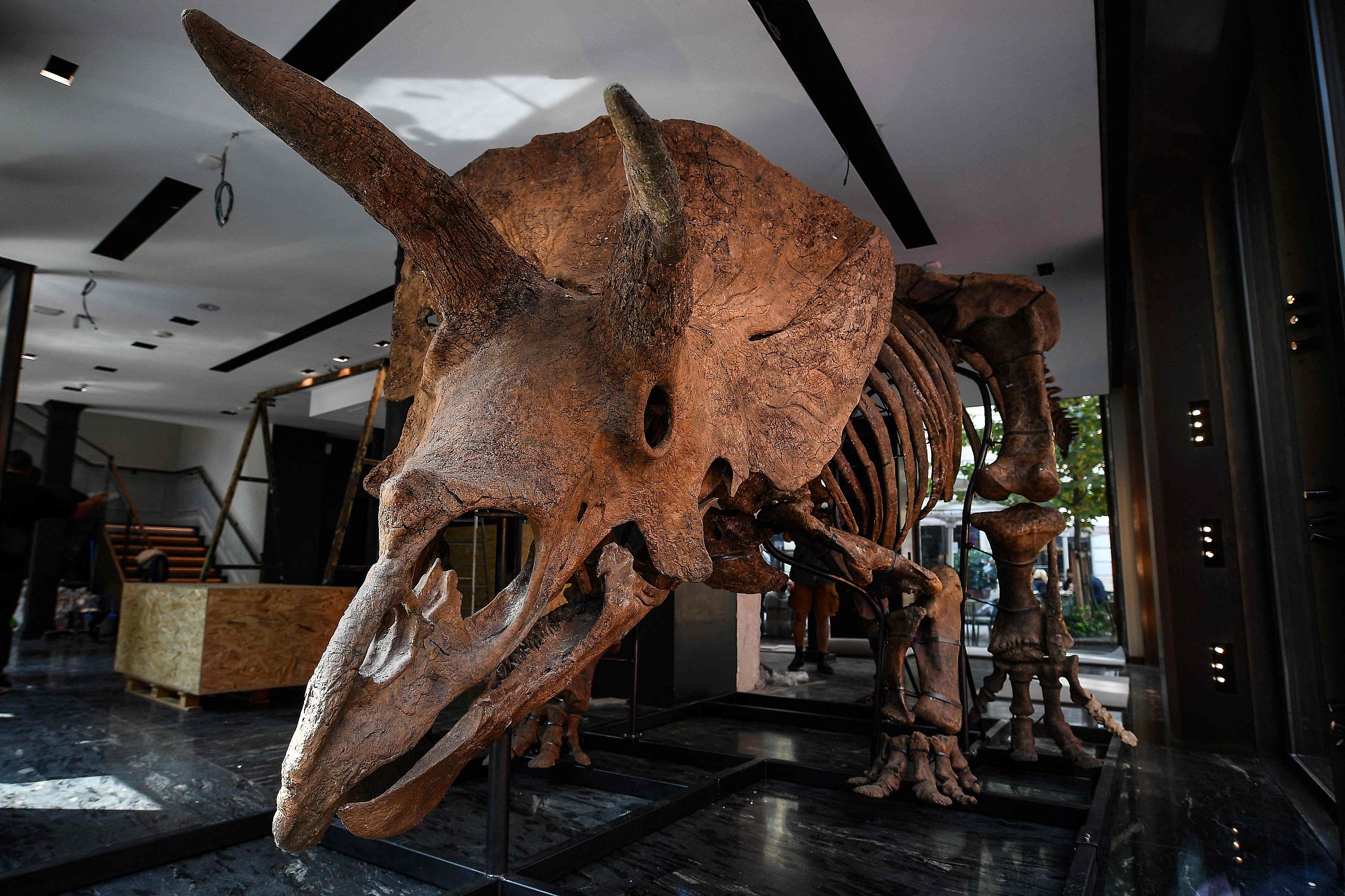Amid a global pandemic, humanitarian crises, natural disasters and other bleak news, light-hearted stories are as necessary as ever. Here is a pick of the week's best funny, silly and quirky news from around the world.
Holy cow!

A cow is transported by helicopter after its summer sojourn on the high Swiss alpine meadows near the Klausenpass, Switzerland, August 27, 2021. /Reuters
A cow is transported by helicopter after its summer sojourn on the high Swiss alpine meadows near the Klausenpass, Switzerland, August 27, 2021. /Reuters
Flying cows may be right up there with pink elephants and unicorns in terms of imaginary animals, but in Switzerland, they are very real. Well, sort of.
A dozen injured bovines were airlifted down from the mountains via helicopter last Friday, unable to make the trip on hoof.
Cows in Switzerland often spend the summer months on high alpine pastures and only come down in September or October in a time-honored parade known as "desalpe" or "Alpabzug."
The airlifted dozen were evacuated near the Klausenpass in canton Uri. The rest of the 1,000-strong herd is due to descend from its summer retreat this coming weekend.
Bovine airlifts have become a regular occurrence in Switzerland: the Swiss air rescue service Rega even lists "animal transports by helicopter on behalf of mountain farmers" as a service on its website.
Dirty money

Euro banknotes damaged in this summer's floods are dried in a standard tumble dryer at the Bundesbank in Mainz, Germany, September 1, 2021. /CFP
Euro banknotes damaged in this summer's floods are dried in a standard tumble dryer at the Bundesbank in Mainz, Germany, September 1, 2021. /CFP
Germany's central bank has been engaging in a new activity following massive floods over the summer: money "laundering." Or at least dry cleaning.
The Bundesbank said it has received 51 million euros ($60 million) worth of bank notes from individuals and banks in flood-hit western Germany over the past two months. Soaked and caked in mud, oil and dirt, the notes are practically unusable.
The damaged bills are thus sent to a center in Mainz where they are dried, flattened and verified to make sure they are not forgeries, before being destroyed. The owners are then reimbursed – in clean, crisp notes – free of charge.
The sudden deluge of damage notes since mid-July has surpassed what the Bundesbank usually receives in an entire year.
So much so that it has had to buy new dryers: indeed, if a soaked stack of notes isn't processed quickly, it will become hard as cement and then good luck peeling individual notes away, according to the bank.
"I love ewe"

In this image taken from video, farmer Ben Jackson's sheep form the shape of a heart in a field in Guyra, northern New South Wales, Australia. /CFP
In this image taken from video, farmer Ben Jackson's sheep form the shape of a heart in a field in Guyra, northern New South Wales, Australia. /CFP
Unable to attend the funeral of a beloved aunt last week due to COVID-19 restrictions, an Australian farmer turned to his sheep for help.
Armed with a drone and a bag of barley, Ben Jackson – who was stuck at his farm in Guyra, New South Wales, some 430 kilometers from Brisbane, Queensland, where his Aunt Deb's funeral was being held – got dozens of his ewes to form a heart in a field. The video was then shown at the funeral.
Jackson began creating shapes with his ewes at the beginning of the pandemic, after noticing they would eat the grain he dropped on the ground in whatever pattern he created. The animals, however, seem oblivious to the fact that they are part of an elaborate choreography.
The video has become a hit on social media in Australia.
As Jackson interpreted it: "Maybe we all just need to give ourselves a big virtual hug."

"Big John", the world's largest known triceratops, is displayed ahead of an auction sale in October at the Drouot auction house in Paris, August 31, 2021. /CFP
"Big John", the world's largest known triceratops, is displayed ahead of an auction sale in October at the Drouot auction house in Paris, August 31, 2021. /CFP
Ever dreamed of owning a full-sized dinosaur? Now's your chance.
A Paris auction house will be putting up for sale next month a 66-million-year-old triceratops known as "Big John," AFP reported.
Eight meters long, it is reportedly the largest surviving skeleton of its kind and is about 60-percent complete: alongside a two-meter-wide skull, the lucky buyer will get some 200 bones.
"Big John," who was discovered in 2014 in South Dakota in the U.S., is expected to sell for between 1.5 and 2 million euros (between $1.8 and 2.4 million), according to the auctioneers.
In the meantime, those interested can inspect the merchandise when the triceratops goes on display at the Drouot auction house in Paris later this month.
Dinosaur skeleton auctions are not rare but can be unpredictable. A 67-million-year-old Tyrannosaurus rex sold last year in New York for $31.8 million, a record for a dinosaur and far more than the estimate of $6-8 million.
However, other dinosaurs put up for auction in Paris found no takers.
Read more:
ICYMI: The week's quirky news from around the world - August 26, 2021
ICYMI: The week's quirky news from around the world - July 9, 2021

